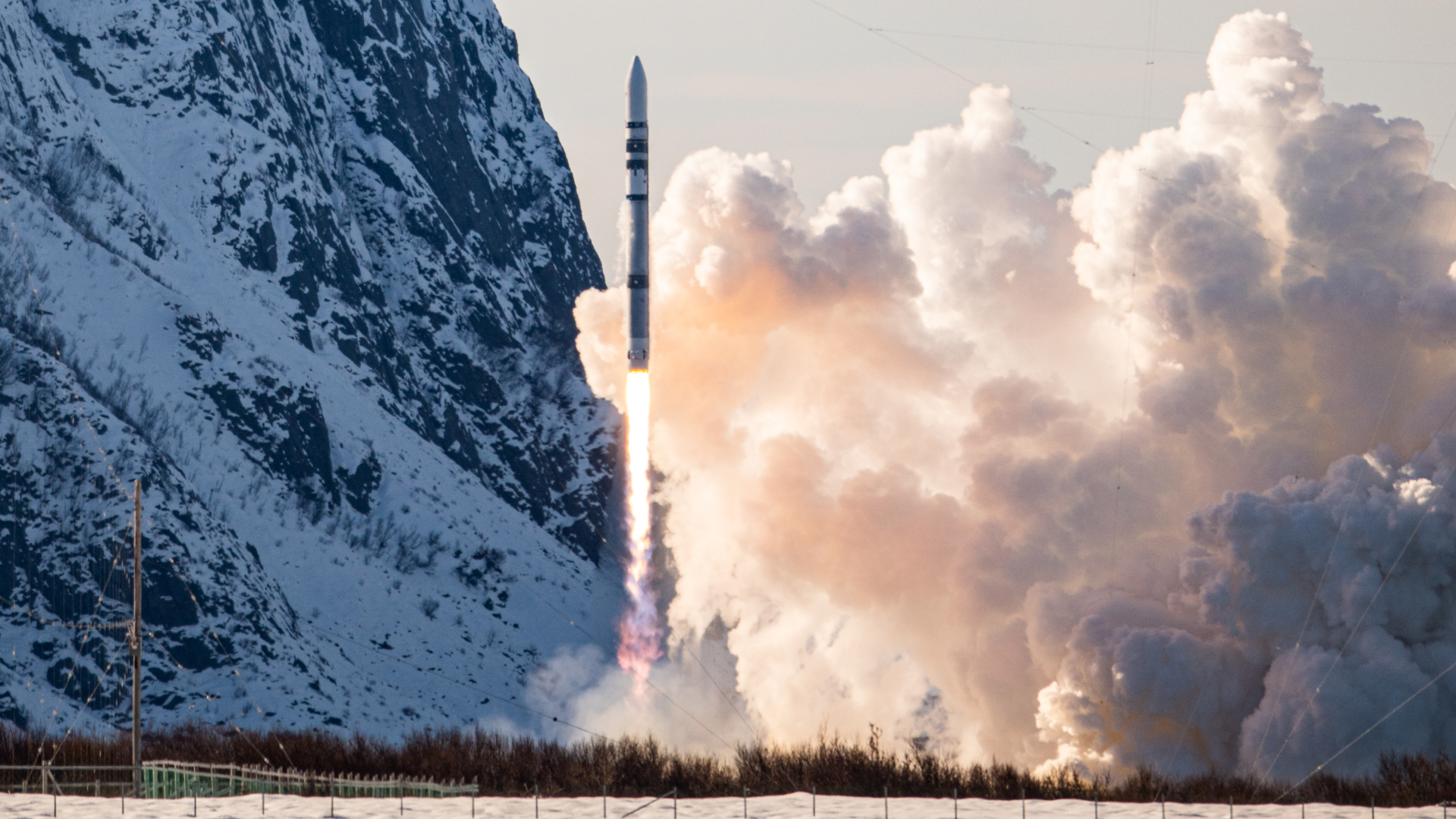1st-ever orbital rocket launch from European soil falls to Earth and explodes seconds into flight
Video from the incident shows the rocket plummeting to the ground shortly after lifting off.
The first flight of Isar Aerospace's Spectrum rocket ended in dramatic fashion today.
Germany-based Isar Aerospace attempted to launch the first orbital rocket from European soil on Sunday morning (March 30). The company's Spectrum rocket lifted off from Europe's Andøya Spaceport in Norway, but suffered an anomaly 18 seconds into the flight.
Dramatic video from the launch shows the rocket tumbling just seconds into flight before plummeting to the icy ground below and exploding in a brilliant fireball.
Video of Isar Aerospace Spectrum hitting the ground. Video from @vgnett pic.twitter.com/lnCe90a17lMarch 30, 2025
It's unclear what caused the anomaly, but it appears that Isar's Spectrum rocket began tumbling just seconds into its debut flight. Video from the incident shows the rocket plummeting to the ground with its engines off, so it's likely that flight controllers terminated the flight once the vehicle began tumbling.
There were no payloads aboard Spectrum's first test flight today. Isar Aerospace was simply attempting to collect data about the vehicle during the maiden launch, according to the company's website.
This was the first rocket launch from Andøya Spaceport, which opened in 2023 along the Norwegian Sea in northern Norway. The ground stations and facilities of the spaceport were built specifically for Isar Aerospace and the Spectrum rocket, and appear to have been unharmed today.

Spectrum measures some 95 feet (28 meters) tall. SpaceX's Falcon 9, by comparison, stands 230 feet (70 meters) high. Isar Aerospace has promoted Spectrum as a small to medium-lift launch vehicle, capable of delivering up to 2,200 pounds (1,000 kilograms) to low-Earth orbit.
Get the Space.com Newsletter
Breaking space news, the latest updates on rocket launches, skywatching events and more!
Spectrum has yet to reach orbit, but Isar has already signed an agreement with the Norwegian Space Agency for the rocket's first commercial missions in which it will launch the Arctic Ocean Surveillance (AOS) program satellites by 2028. It's unclear if today's anomaly will affect that timeline.
Join our Space Forums to keep talking space on the latest missions, night sky and more! And if you have a news tip, correction or comment, let us know at: community@space.com.

Brett is curious about emerging aerospace technologies, alternative launch concepts, military space developments and uncrewed aircraft systems. Brett's work has appeared on Scientific American, The War Zone, Popular Science, the History Channel, Science Discovery and more. Brett has English degrees from Clemson University and the University of North Carolina at Charlotte. In his free time, Brett enjoys skywatching throughout the dark skies of the Appalachian mountains.
You must confirm your public display name before commenting
Please logout and then login again, you will then be prompted to enter your display name.









